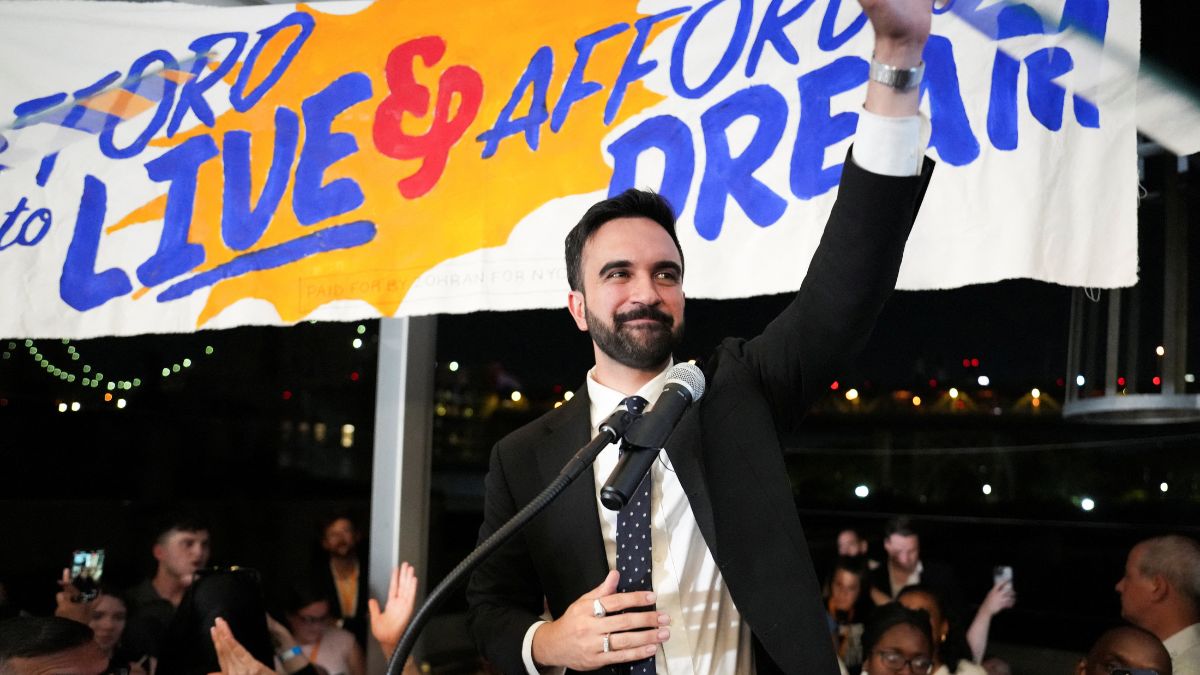Socialist Robin Hood of Citalist NYC: Mamdani’s rise sets stage for a new kind of showdown
)
Indian-Origin Democratic Socialist Zohran Mamdani Shakes Up New York Democratic Primaries
In a surprising upset that has sent ripples through New York's political landscape, 33-year-old Zohran Mamdani, an Indian-origin Democratic Socialist, secured a decisive victory in the recent Democratic primary elections. The outcome has not only ignited discussions about the shifting ideological leanings within the Democratic Party but also raised fundamental questions about the potential for socialist leadership in the heart of American capitalism.
Mamdani's Victory: A Defeat for Established Political Order
Mamdani's win is particularly significant given the defeat of candidates with ties to the established political order, including those associated with former New York Governor Andrew Cuomo. While the specific primary election details are crucial for understanding the full scope of this upset, the core takeaway is that Mamdani's progressive platform resonated deeply with a significant segment of the Democratic electorate.
The Road Ahead: Challenges and Opportunities
Despite this primary victory, the path to becoming the next Mayor of New York City remains challenging. The incumbent, Eric Adams, a Democrat with a more centrist approach, along with the Republican nominee, present formidable obstacles. The general election campaign will likely be a battleground of competing visions for the city's future, with Mamdani advocating for policies that address wealth inequality and social justice.
Can a Democratic Socialist Lead New York City?
The central question emerging from Mamdani's success is whether a Democratic Socialist can effectively govern a city as complex and economically diverse as New York. This query goes beyond mere political feasibility, touching upon fundamental debates about the role of government in regulating markets, providing social safety nets, and addressing systemic inequalities.
Expert Perspectives on the Political Shift
Political analyst Dr. Eleanor Vance, a professor of urban politics at Columbia University, suggests that Mamdani's victory reflects a growing disillusionment with traditional political establishments. "We are seeing a surge in support for progressive candidates, especially among younger voters and marginalized communities, who feel that the current system is not adequately addressing their needs," she notes. "Mamdani's campaign successfully tapped into this sentiment, offering a compelling vision of a more equitable and just city."
However, economist Dr. Robert Sterling, specializing in urban development at NYU, cautions against overstating the implications. "While Mamdani's win is undoubtedly significant, it doesn't necessarily represent a complete ideological shift within the Democratic Party. New York City has always been a hub of diverse political views, and the general election will be a true test of whether these progressive ideals can garner broader support."
Historical and International Context
The rise of Democratic Socialism in the United States is not an isolated phenomenon. Across the globe, particularly in Europe, socialist and social democratic parties have played significant roles in shaping national policies and governance. The Nordic countries, for instance, are often cited as examples of successful social democratic models that prioritize social welfare and economic equality. In the US, figures like Bernie Sanders have popularized Democratic Socialist ideas, making them more mainstream and palatable to a wider audience. This global context provides a framework for understanding the potential for socialist-inspired policies to address contemporary challenges.
Looking Ahead: The General Election and Beyond
The upcoming general election promises to be a closely watched contest, not only for its local implications but also for its potential to signal broader trends in American politics. Mamdani's campaign has already demonstrated the power of grassroots mobilization and the appeal of progressive ideas. Whether he can translate this momentum into a city-wide victory remains to be seen. Regardless of the outcome, his success in the Democratic primaries has undoubtedly injected a new and vibrant energy into New York's political discourse, forcing a re-evaluation of the possibilities and limitations of socialist leadership in the 21st century.
Originally sourced from: Firstpost
